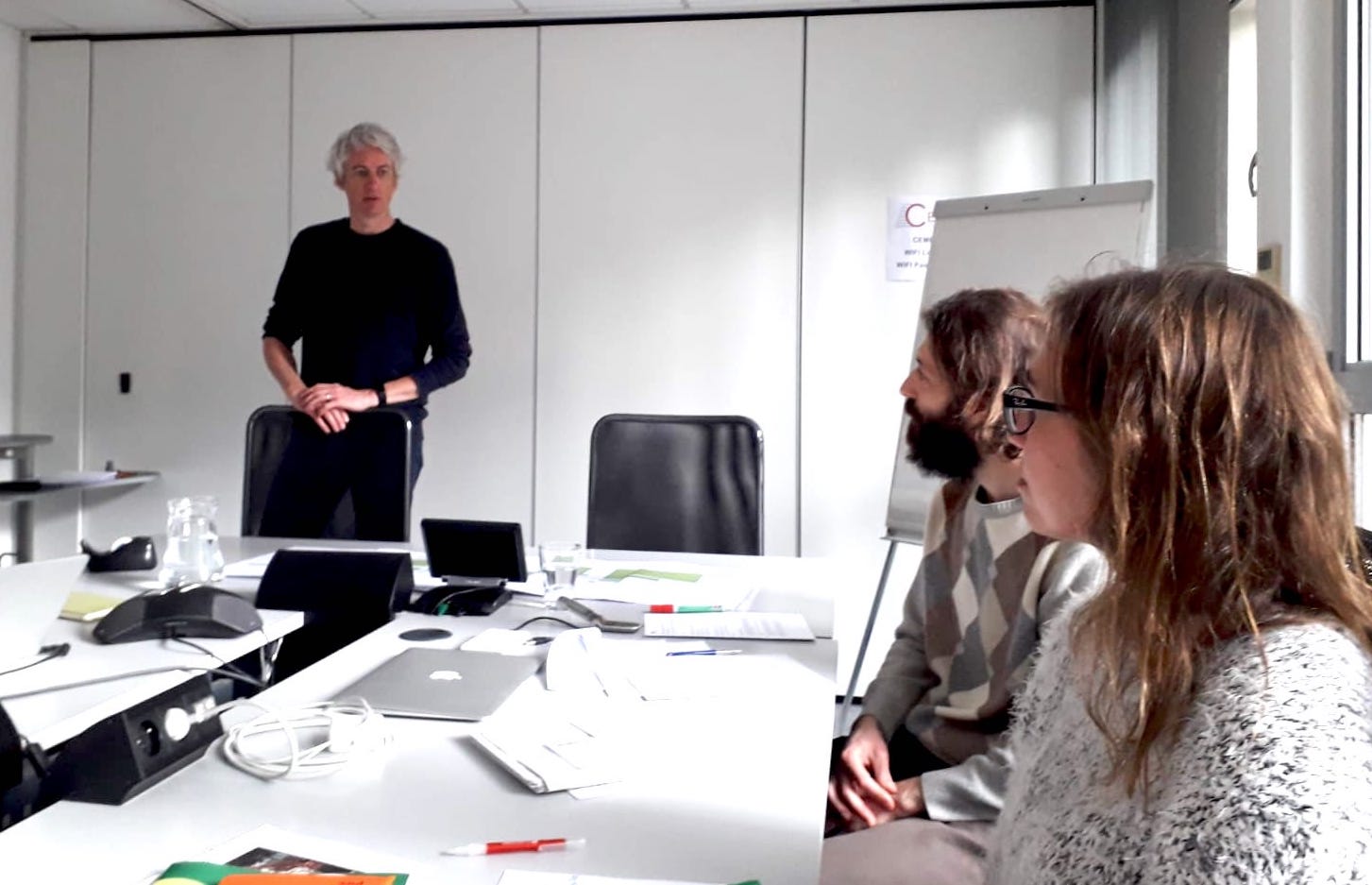“My Talents. For Diversity”
Creating new employment possibilities, changing attitudes towards people with intellectual disabilities and giving them ownership over services that were created for them. These were some of the topics that were discussed at the first meeting of the “My Talents. For Diversity” project, which took place in Brussels.
The goal of this project, which will last two years, is to help employ people with intellectual disabilities in the primary job market.
Which good practices already exist in this area? At the meeting, project partners shared their experiences:
Inclusion Europe’s Estonian member EVPIT is regularly organising trainings for employers and colleagues of people with intellectual disabilities. These trainings mostly tackle the human aspect of creating a work environment that is welcoming for people with intellectual disabilities.
Plena Inclusión is working in close contact with Spanish service providers who promote employment. They also collaborate with the Spanish public administration. “In most Spanish regions, 7% of the jobs in public administration are reserved for disabled people, and of these, 2% to people with intellectual disabilities. We are making sure that the employment process is actually accessible for people with intellectual disabilities”, said Silvia Muñoz, coordinator for employment at Plena Inclusión.
The Antwerp Management School has developed a test for employers to find out whether they are ready to hire people with intellectual disabilities. They also have started employing people with intellectual disabilities themselves. “It is important that a company has a plan before recruiting people with intellectual disabilities. Job coaches are equally crucial for successfully employing someone with an intellectual disability”, explained Bart Cambré, Vice Dean & Chair of Business Research Methods at the Antwerp Management School.
How to create an inclusive workplace?
There is also a lot to say about what an inclusive workplace looks like – inclusion needs to start during the recruitment process. Jobs need to be accessible, and requirements must be established taking into account that many people with intellectual disabilities do not receive the same education as others. According to Milan Šveřepa, Inclusion Europe’s director, “we should organise the recruitment process in a different way and always learn to be better employers ourselves.”

One important indicator of an inclusive workplace is equal pay for employees with and without intellectual disabilities in the same position and giving them the same autonomy. Other criteria are tasks that are commensurate to the skills of the respective employees, and information in easy language on things such as how to use certain machines, fire drills etc.
Inclusion needs to happen on the human level, too. Organisations’ and companies’ social life, such as coffee and lunch breaks, after-work drinks or office parties should include employees with intellectual disabilities. Another question to be asked is if employees with intellectual disabilities have a so-called “natural support”, that is, a colleague that they feel close enough to open up to and ask for support if needed.
Another aspect to be considered when employing people with intellectual disabilities is the equal treatment of women. As Silvia Muñoz from Plena Inclusión pointed out, “70% of self-advocates are men, but only 30% of women. This can easily result in problems when trying to hire women.”
The question how to encourage organisations and companies to take on people with intellectual disabilities was another issue tackled at the project meeting: Stressing that people with intellectual disabilities have a right to employment is not necessarily the best way. Instead, the focus should be shifted towards showing that people with intellectual disabilities are offering something useful, are skilled and motivated to work, in times when workforce is often scarce.
Of course, there has to be an interest from the employer’s side as well. As Bart Cambré from the Antwerp Management School puts it: “If someone just wants to maximise profit, then we won’t be able to work together. But if an employer cares about the organisation‘s or company’s image and its working culture, then people with intellectual disabilities have a lot to offer.”
Philipa Bragman from Change People, a UK based human rights organisation working mostly with people with disabilities, suggested that a good starting point is addressing organisations and companies that already have shown interest in the topic of disability, or provide some kind of service for people with intellectual disabilities. These organisations are in fact more likely to be interested in hiring them. Change People recently supported six women with intellectual disabilities to be fully employed at the NHS, the UK’s national health service.
What will be the next steps?
The next steps of the “My Talents. For Inclusion” project will be identifying organisations and companies that succeeded in creating a truly inclusive work space.
The project will also develop capacity building trainings for employers and employees with intellectual disabilities, with the ambition to support the employment of about 400 people with intellectual disabilities. More broadly, the project also aims to create evidence-based recommendation for hiring people with intellectual disabilities.





